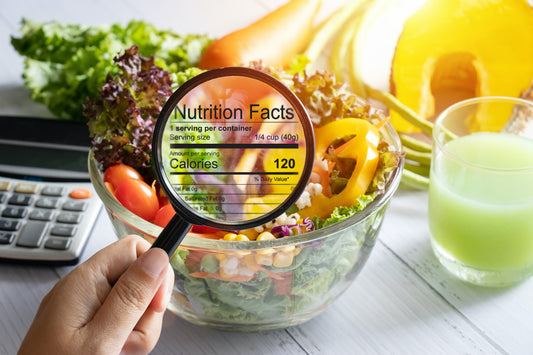We may not have royalty in Australia but there have been times for most of us when a dietician by the name of Alan Boruschek was king.
He was anointed The Calorie King in fact and we would flip through the pocket sized pages of his Calorie Counter furiously searching for the cost each green bean would have on our daily tally. We felt some victory that we could have a slice of (topping-free) pavlova for the same amount of calories as a one-egg omelette. There were days it seemed worth it.
But much more is known about food and its energy composition now. More is being discovered all the time and the good news is that we can stop counting.
It’s really not helping. Our brain may know we’ve consumed 500 calories for breakfast but our body doesn’t.
If weight gain were as simple as counting calories then the solution would be to eat fewer calories but we’ve done that for many years with no success.
Along with Mr Boruschek, we now have so many calorie counting apps, features on our devices and exercise machines that do the counting for us but they’re not really helping with long-term weight loss.
The body can’t count calories but it does know that food has an impact on our metabolism which tells the brain whether to store or burn the energy supplied by the food. Every food has a different metabolic impact so, for example, 100 calories worth of broccoli won’t be as `fattening’ as 100 calories of white bread because the foods are metabolised differently.
This is where insulin comes into the process. A food comprised mainly of refined foods – say, pasta, bread, ice cream – will elevate your insulin levels thereby allowing for highs and lows in metabolic output throughout the day. It makes us dependent on glucose for energy.
The aim is to stabilise those insulin levels by eating foods that balance carbohydrate, protein and good, essential fats.
The tendency with calorie counting is to eliminate fat when it’s the one nutrient that doesn’t illicit an insulin response.
The time we consume the food is also crucial to levelling out the insulin response so it becomes a three pronged approach – what we eat, when and how. It’s really not about calories. They may help in the short term, but in the long run counting calories does more harm than the good that comes with a steady, even-handed approach to eating.
























